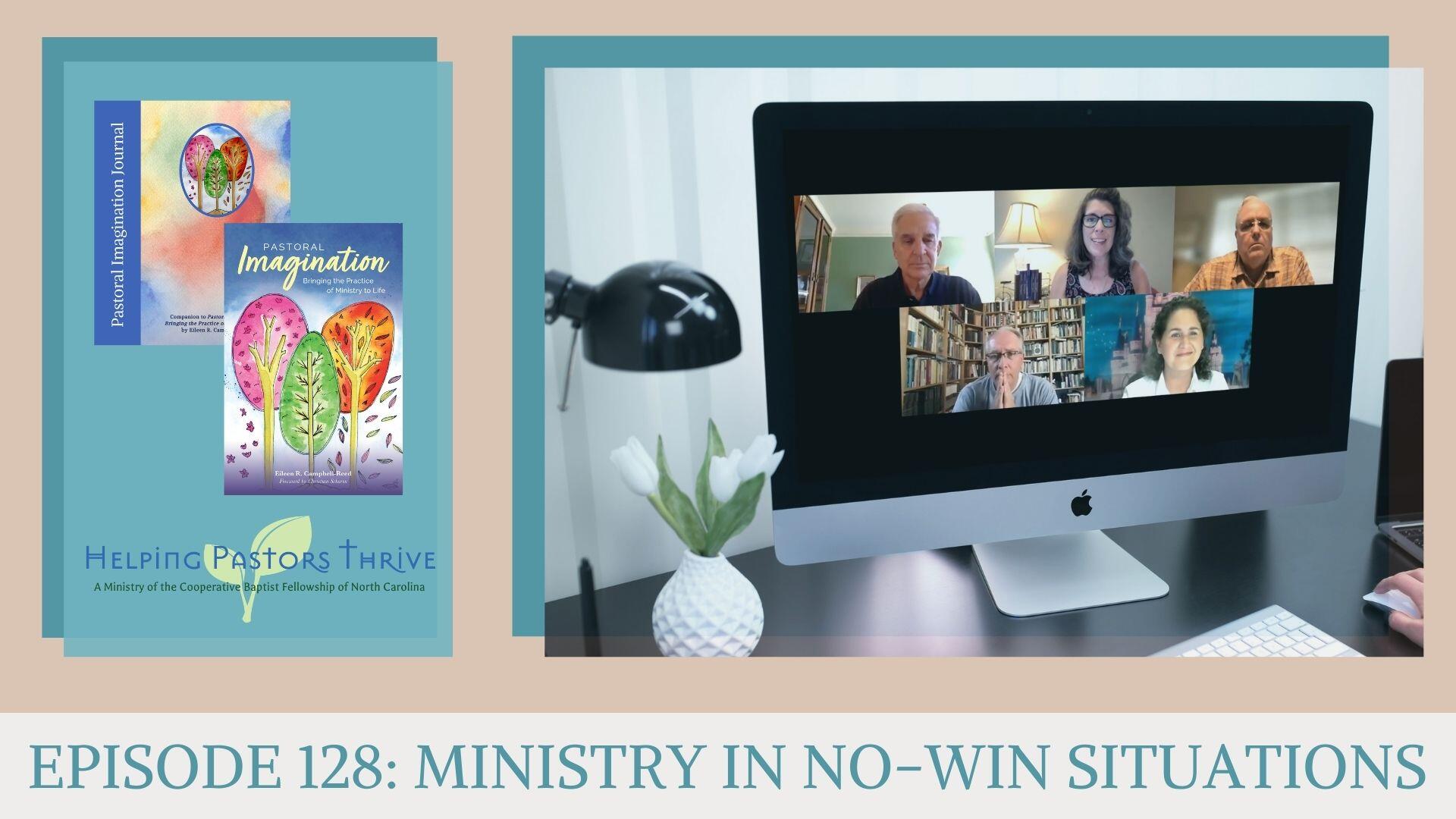Challenge. Question. Conflict. Change.
How do you practice ministry in a no-win situation?
Last week I talked with more than two dozen pastors, ministers, and chaplains. I also talked with ministry mentors and my seminary colleagues. And in my weekly classes and individual conversations, I encountered dozens of seminary students. Through the week, I wore many hats: teacher, mentor, researcher, pastoral caregiver, and friend. And I heard a lot of stories.
There were themes. I heard about financial, staffing and volunteer challenges. And I listened to ministers raise questions about vocational uncertainty and the need for fresh discernment. I heard about conflicts. And to be clear, I also heard about ministry where hope and resilience shined through.
The common denominator, however, were the stories of big transition. I heard stories about how the last 18 months have reshaped ministry. Even the ministers and students with the most energy and enthusiasm in this moment, are quick to talk about how challenging ministry is right now. As usual, concerns about gender, race, and human sexuality are present in the situations. And in one setting we asked ministers to reflect on preparation and theological education. They were candid about what did and did not help. I heard a lot about congregations in transition and conflict. And I witnessed stories about major change, decline, and loss.
We are living in a long season of no-win situations. So much that they are starting to feel like the norm these days. But then pastors and chaplains and ministers in many settings face difficult — even impossible — situations all the time. However, the twin pandemics of Covid-19 and the chronic and exhausting racist culture, are amplifying everything else. Now run-of-the-mill church conflict, regular cycles of decline and renewal, and power struggles escalate quickly into much bigger concerns.
Navigating Conflict
The stories that really stand out from this past week came from pastors who are presently walking away from toxic, no-win situations. The toll of these situations on families and friendships and the souls of pastors is steep, very steep. Yes, many other professionals are under tremendous pressure right now as well.
And there are no easy answers. There is, however, a deep well of wisdom and support to draw upon. That well is best filled and tended by years of experience, and spiritual presence, and good mentoring.
This week’s video story comes from chapter 45 of Pastoral Imagination. Bishop Carlos is a Pentecostal pastor and bishop. In that role he faces conflict regularly. He told us in an earlier interview how his approach to conflict changed over the years.
From Carlos we learn something about how to listen and how to speak, when to be silent and when to ask clarifying questions. His skill for navigating conflict has changed with time, and he is now a better listener.
How do you know what to listen to and when to speak while you are navigating conflict?
Mentoring through No-win Situations
Interlaced in the stories I heard this week was also a deep gratitude for mentors who accompanied ministers through impossible situations. For example some ministers talked about peer groups who are a sounding board through times of conflict. Other ministers talked about reaching out to former seminary professors for advice. Some of the ministers I talked with have assembled a team of supporters. They includes people such as a spiritual director, pastoral coach, and/or a group of ministry peers.
Earlier this month we recorded a conversation with four mentors who work with new pastors in the Helping Pastors Thrive initiative. The HPT initiative supports both new and experienced pastors in various ways. Funded by the Lilly Endowment, Inc., HPT is a program of the Cooperative Baptist Fellowship of North Carolina. If you are in the role of mentoring someone who is facing a no-win situation? I think you will find some wisdom from these ministry mentors.
You can meet these pastoral mentors in Part I of our conversation. Scott Hudgins is director of the HPT initiative. Greg Rogers is pastor at Oakmont Baptist Church in Greenville, North Carolina. Andrea Dellinger Jones is pastor of Millbrook Baptist Church in Raleigh, North Carolina. And Tim Moore is the writer in residence at Sardis Baptist Church in Charlotte, North Carolina.
In Part II the ministry mentors talk about ways pastors are facing what look like no-win situations right now. We talk theological conundrums and pandemic pastoring.
Listening Guide
1:00 Tim on the “no-win situations” that pastors face
2:50 Andrea on the timing of addressing the pandemic conditions
7:15 Eileen on writing a book through two pandemics
How we practice ministry is a matter of life and death
8:50 Scott on how the network of practices work together
10:10 Ministry is not transactional but art
How am I thinking about ministry?
13:20 Greg on what made Pastoral Imagination come alive
16:30 Greg on mentorship vs. sponsorship
18:50. Eileen on sponsorship and empowerment in higher education and ministry
21:30 Eileen on recruiting the mentors you need
23:20 Scott on intergenerational ministry and mentorship
+++++++++++
The art and practice of leading people of faith is one that starts with listening to God in silence. While leadership based on business models or social change may commend skills of motivating people, casting vision, or organizing resources, there could be another starting point for leading disciples. What might happen if you entered each meeting, ritual service, or task of your organization’s life with patient attention to silence and holy presence?2 What if, following Bishop Carlos, you tried “listening with a blank page”? ~ Eileen Campbell-Reed, Pastoral Imagination (p. 281, Fortress Press, Kindle Edition)
Are you trying to lead through a no-win situation?
What would happen if you approached it this way? #MondayMotivation #pastoralimagination pic.twitter.com/wkEoRe3nzQ— Three Minute Ministry Mentor (@3MinuteMin) September 27, 2021




